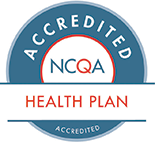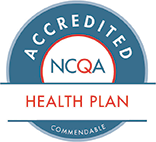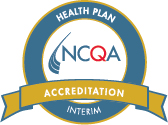Alternative treatments
It is important to understand and consider all factors — including additional costs — as you discuss treatment options with your provider. When it comes to treatment for upper GI issues, surgery is not your only option. Many alternative treatments and self-care options are as effective, less invasive and less expensive.
Adjusting your eating habits
Avoid trigger foods. Changing your diet can yield big benefits. Some triggers include chocolate, coffee, alcohol, peppermint, citrus juices and tomatoes. Your specific food triggers may differ. Keep track of what you eat just before you feel your condition worsen.
Eat smaller meals. Instead of eating three big meals a day, try more frequent smaller meals.It’s not just what you eat but how much.
Don’t eat before bed. Not eating a few hours before bed gives your stomach time to empty before you lie down.
Weight loss
Being overweight puts you at risk for many conditions. Aiming for a 10 percent weight loss is always a good idea.
Medications
Prescription and over-the-counter medication also can be an effective treatment.
Evaluate your other medications
Many common medications, including aspirin and other nonsteroidal anti-inflammatory drug (NSAID) painkillers, along with some drugs for high blood pressure, can make conditions - such as gastroesophageal reflux disease (GERD) - worse. Talk to your doctor about possible alternatives that may not worsen your symptoms.
If you smoke, quit
Smoking is unhealthy and may aggravate upper GI symptoms. Add this to your list of good reasons to kick the habit.
Take your medicine as prescribed
Symptoms may come and go, but the underlying condition remains. Once you’re feeling better, you may be tempted to stop your long-term medication. Never stop taking your medication unless you’ve talked to your doctor.
Adjust your clothing
Tight belts or pants can aggravate your symptoms. Wear looser clothing, especially at night.
Elevate your head when you sleep
Place blocks under the head of your bed and raise it 6 to 8 inches. Gravity will prevent the acids in your stomach from flowing into the esophagus during the night.
Resources
Please visit these resources for more information:
Upper Endoscopy, 2012, Mayo Clinic.
Digestive Problems and Upper Endoscopy, 2010, WebMD.
Upper GI Endoscopy. NIH Publication No. 09–4333, May 2009, National Digestive Disease Information Clearinghouse (NDDIC).
We're sorry, this information is not available in . Please use the dropdown at the top of the page if you would like to view information for another state.
Questions?
If you can't find an answer, please feel free to contact our Customer Service Customer Service Customer Service
Questions?
If you can't find an answer, please feel free to contact our Customer Service
Employer web tools
Benefit Tracker
Check benefits, eligibility, incentive and utilization
Rate finder is now in the Producer Dashboard
Log in with your current username and password to create quotes for groups up to 50.
Producer DashboardLog in






Hello.
We have exciting news to share. ODS is changing its name to Moda Health.
Moda comes from the latin term "modus" and means "a way". We picked it because that's what we are here to do: help our communities find a way to better health.
Together, we can be more, be better.
Please select the state you live in, or the state where your employer is headquartered, so we can tailor your experience:

Hello.
Please select the state you live in, or the state where your employer is headquartered, so we can tailor your experience:
Privacy notice
We use cookies and similar analytics technologies to understand how visitors interact with our website, improve performance, and enhance user experience. These tools help us analyze traffic patterns and usage trends.
We do not collect or store personal information, track users for advertising purposes, or use social media plugins.
By continuing to use this site, you acknowledge our use of cookies for analytics purposes only. For more information, please refer to our Privacy Policy.
Changing your location to Oregon
You can return to your previous location in the site header.


